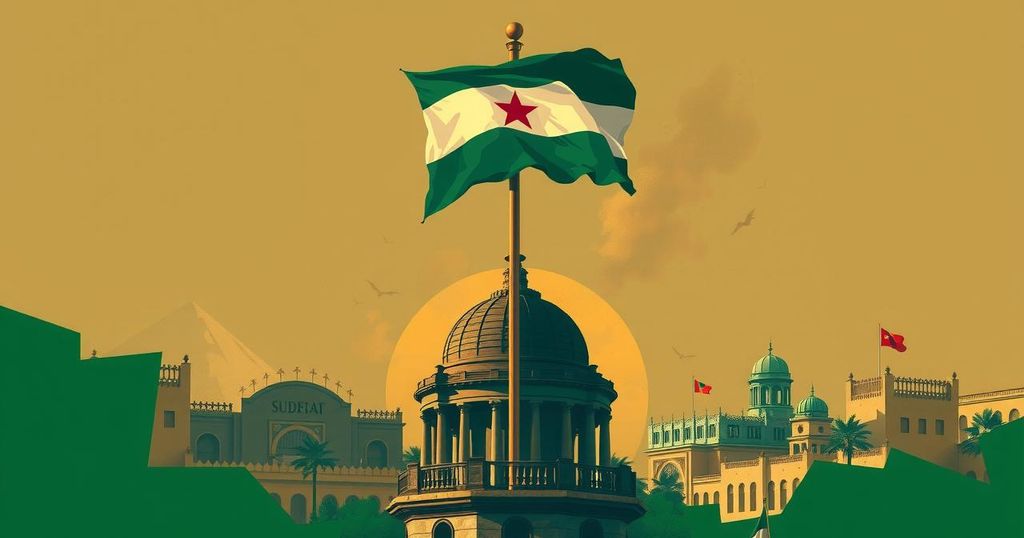Sudanese Military Strengthens Control Over Khartoum Amid Ongoing Conflict

Sudan’s military has regained control of crucial locations in Khartoum, including the Republican Palace, from the RSF. The military’s spokesperson announced the retake of various government buildings, while RSF fighters suffered significant losses. The ongoing conflict has resulted in substantial casualties, humanitarian crises, and serious human rights concerns, with the military now aiming to recapture the international airport held by RSF.
Sudan’s military has reportedly strengthened its control over Khartoum by seizing significant government buildings following its retrieval of the Republican Palace from the Rapid Support Forces (RSF). Brigadier General Nabil Abdullah stated that troops successfully expelled RSF members from key locations such as the National Intelligence Service headquarters and the Corinthia Hotel. The Central Bank of Sudan and various educational facilities were also recaptured, with numerous RSF casualties reported as they attempted to escape the capital.
The military’s takeover of the Republican Palace marks a considerable symbolic victory after nearly two years of conflict against the RSF. The resurgence of fighting saw a drone attack attributed to the RSF target the palace, resulting in the deaths of two journalists and a military officer. The RSF initially occupied significant sites in Khartoum, causing substantial disruption to the city’s governance.
Recent months have indicated a shift in momentum, with the Sudanese military regaining control over Khartoum and nearby regions, including Omdurman and Khartoum North. Following the lifting of the RSF’s siege on the General Command in late January, the military’s advance allowed for the retaking of the palace shortly thereafter. The military now aims to capture Khartoum International Airport, located merely 2.5 kilometers from the palace, which has been under RSF control since the onset of the conflict.
The ongoing war has led to catastrophic consequences, including over 28,000 fatalities and the displacement of millions. Reports indicate severe humanitarian crises, with families facing extreme hunger. The conflict is further marred by reports of human rights violations, including mass rape and ethnically driven killings, especially in Darfur, as documented by the United Nations and international human rights organizations.
In conclusion, the Sudanese military’s recent victories represent a crucial development in its ongoing conflict with the RSF, reflecting both strategic gains and significant humanitarian crises. As the military consolidates control over key landmarks in Khartoum, the war continues to inflict devastating tolls on the population, with urgent issues of human rights violations and humanitarian needs remaining prevalent. The future trajectory of the conflict and its implications for stability in Sudan remain uncertain as the military seeks to reclaim further territory.
Original Source: apnews.com







